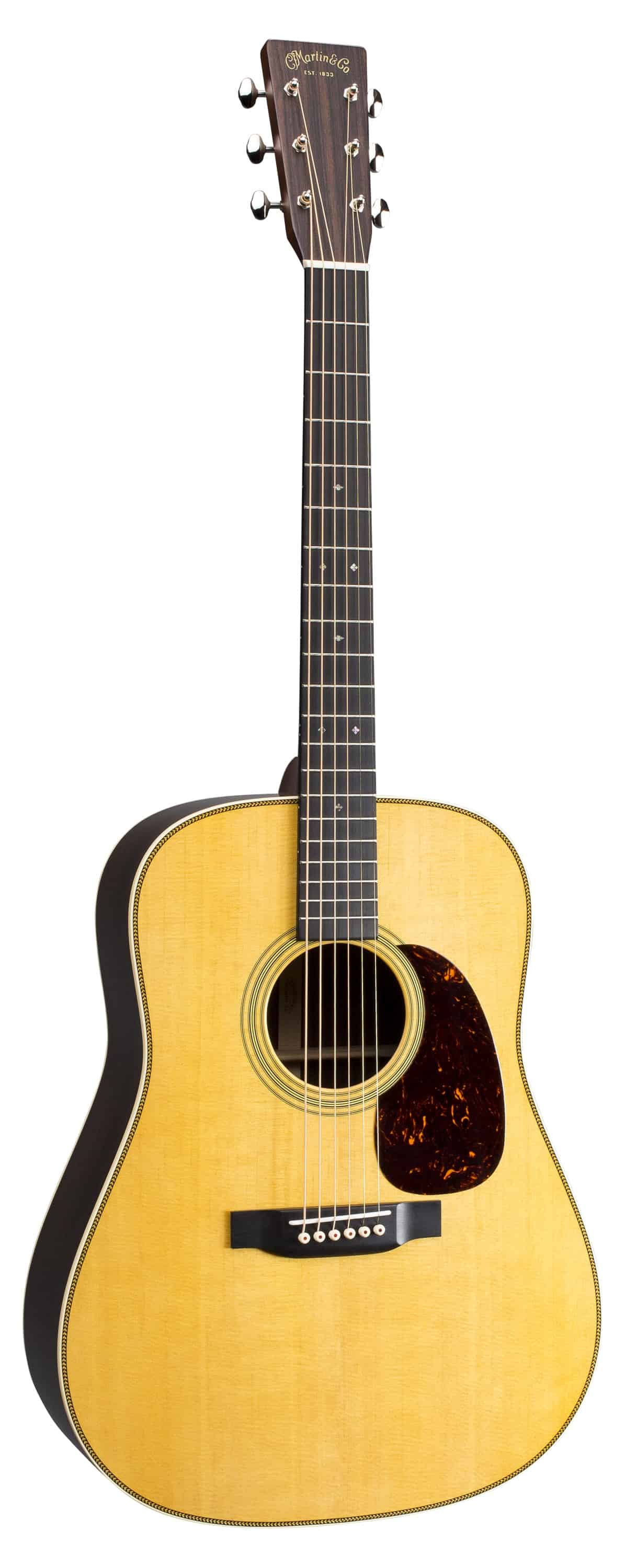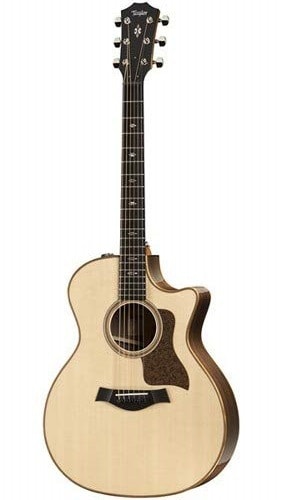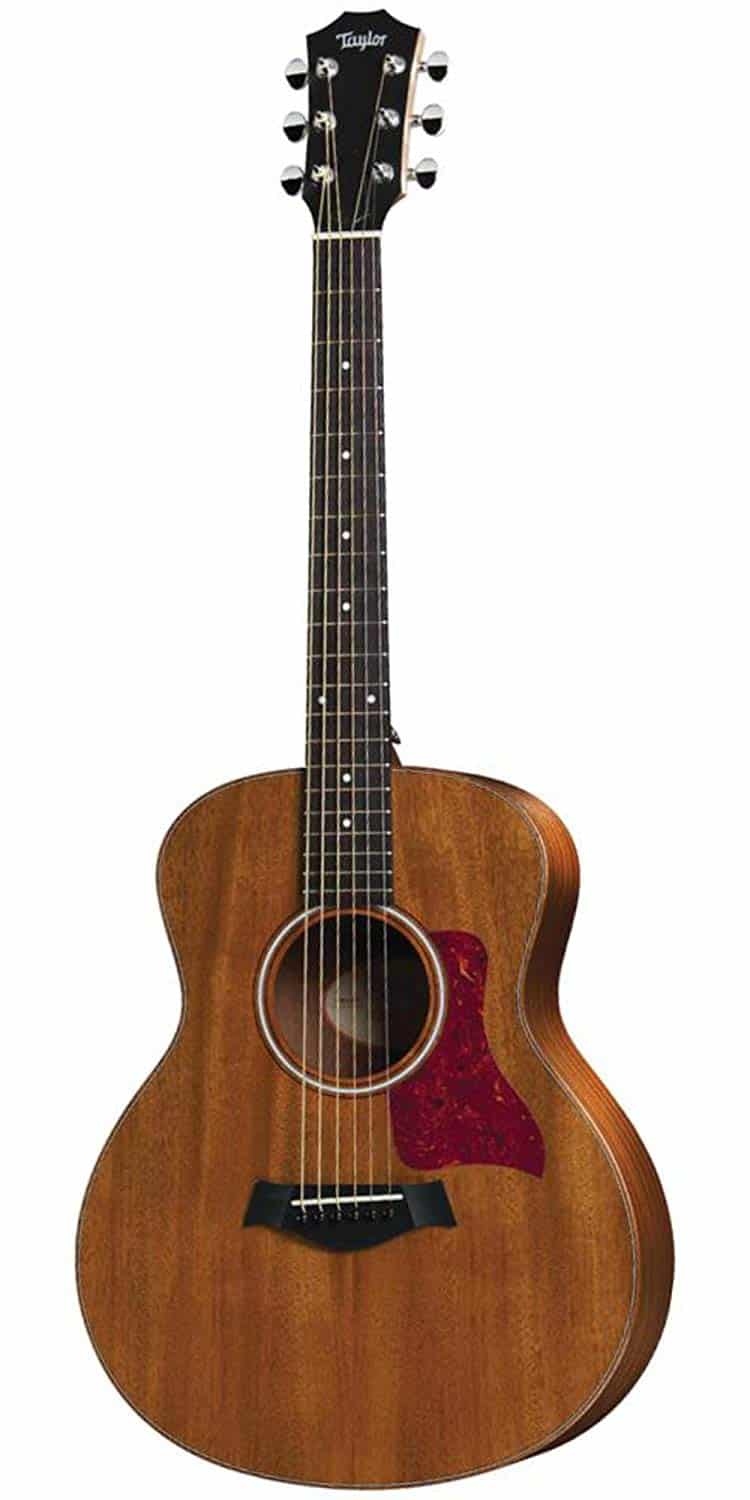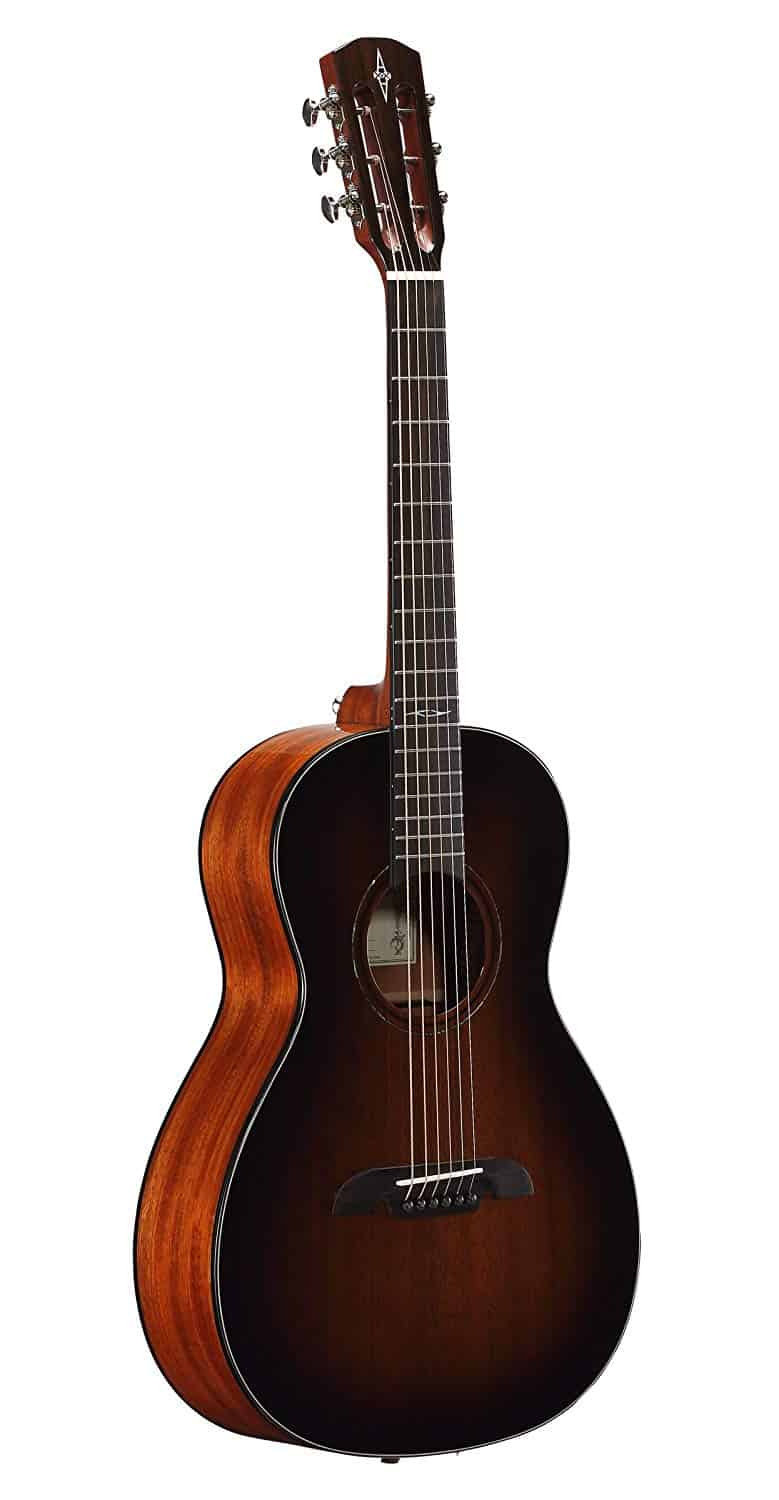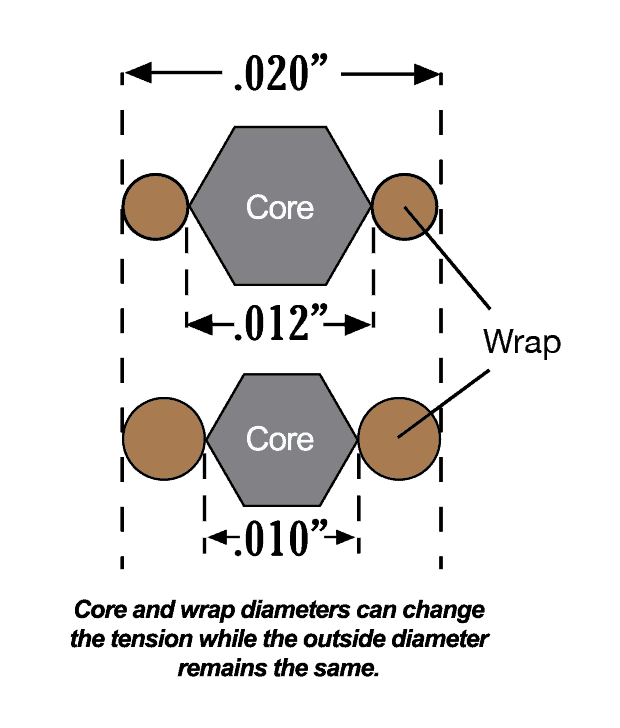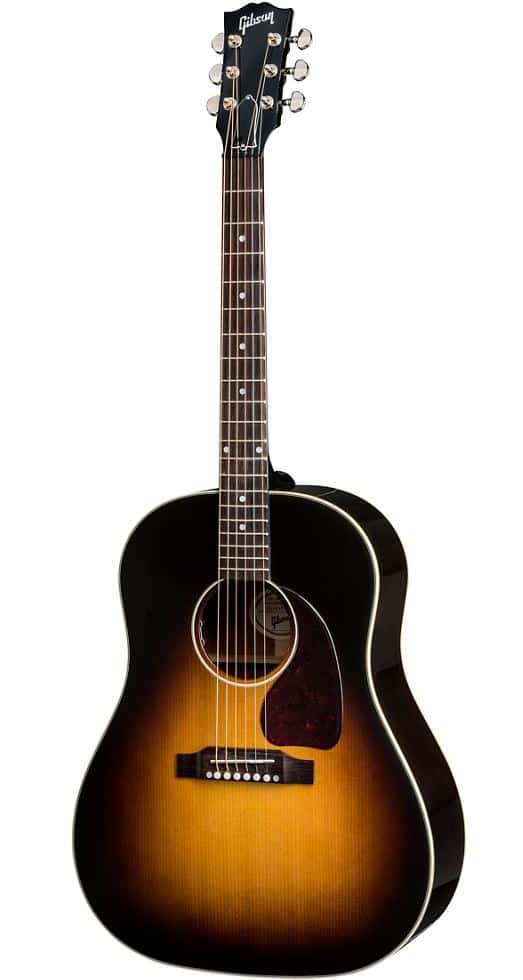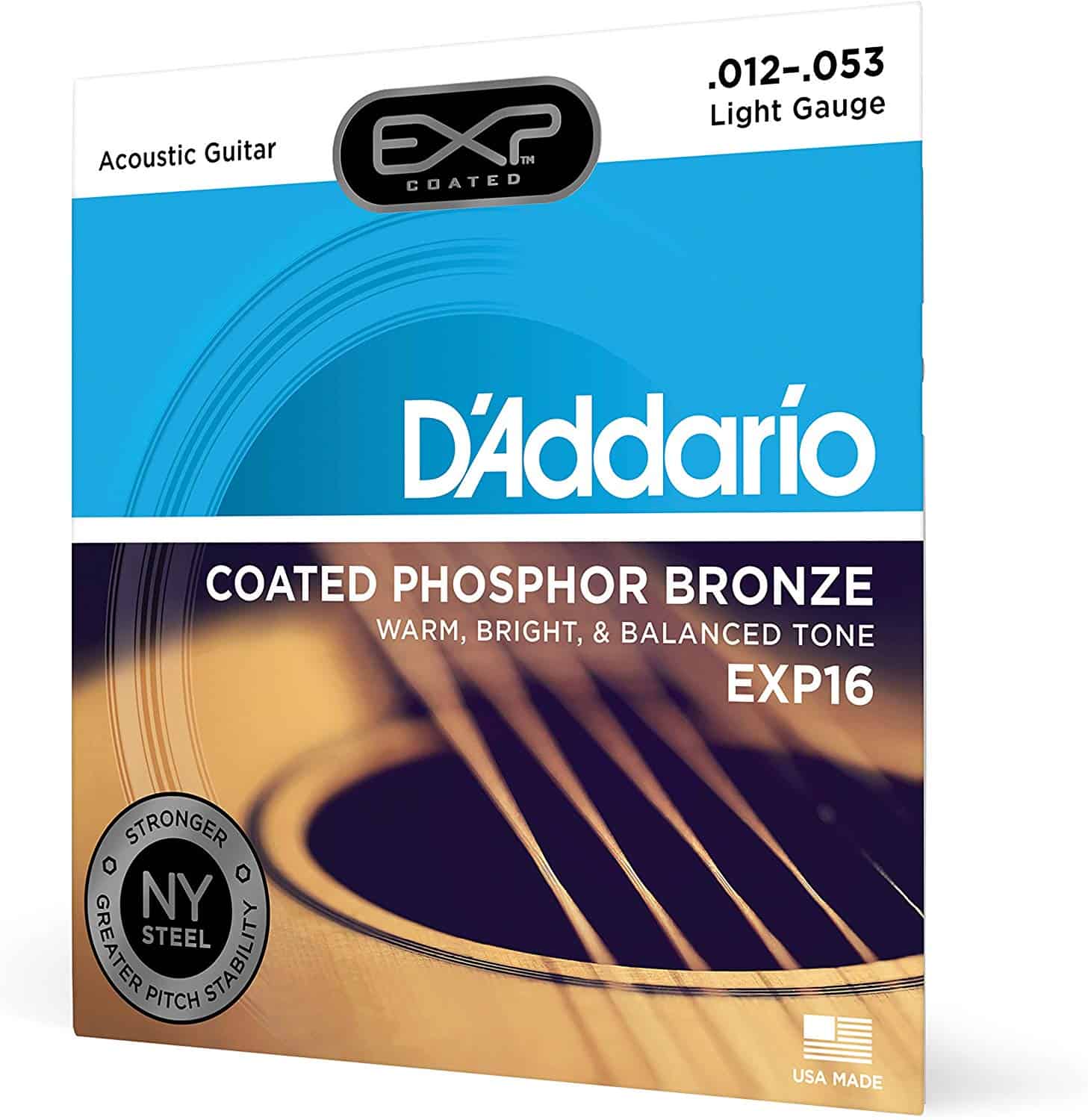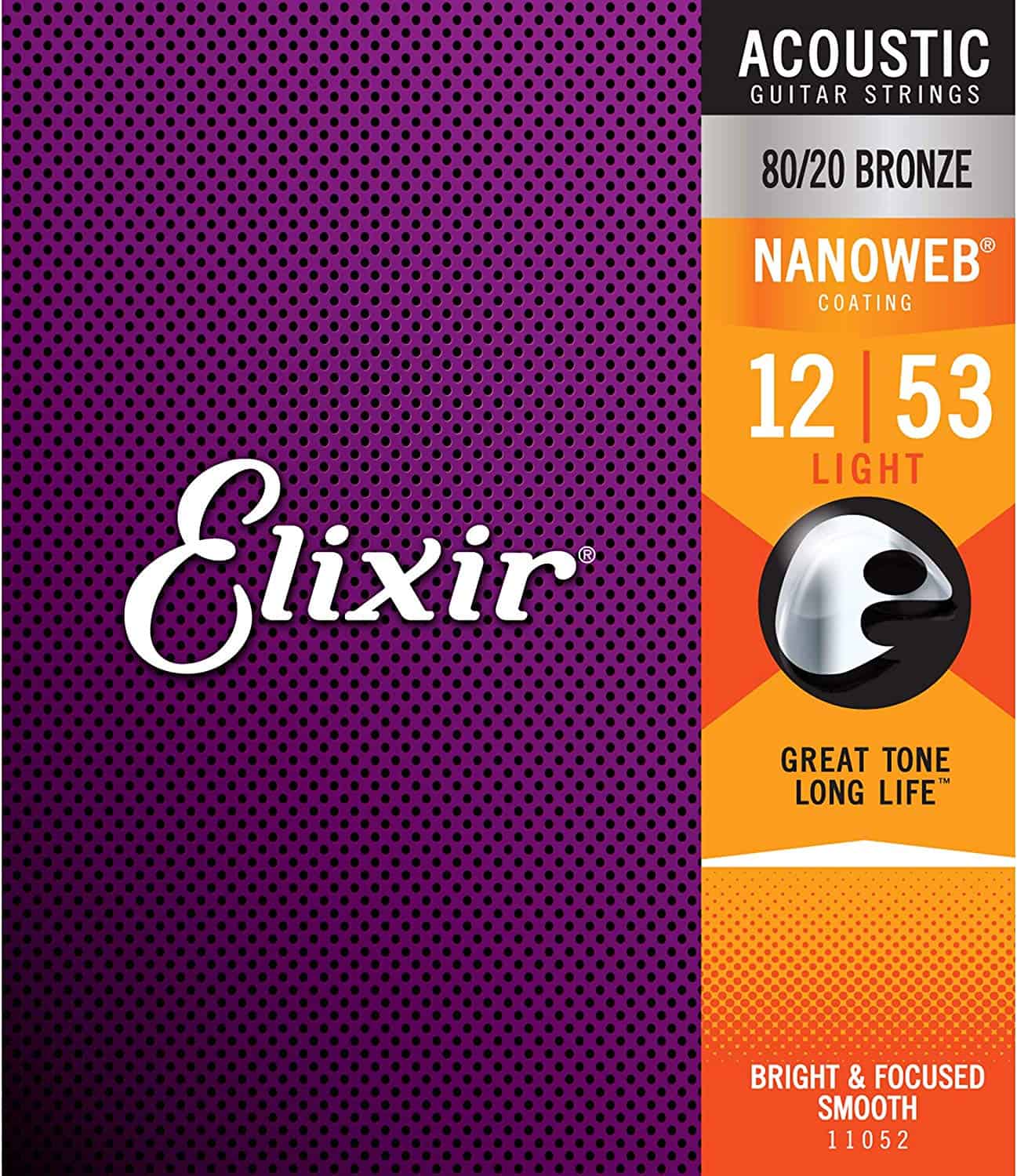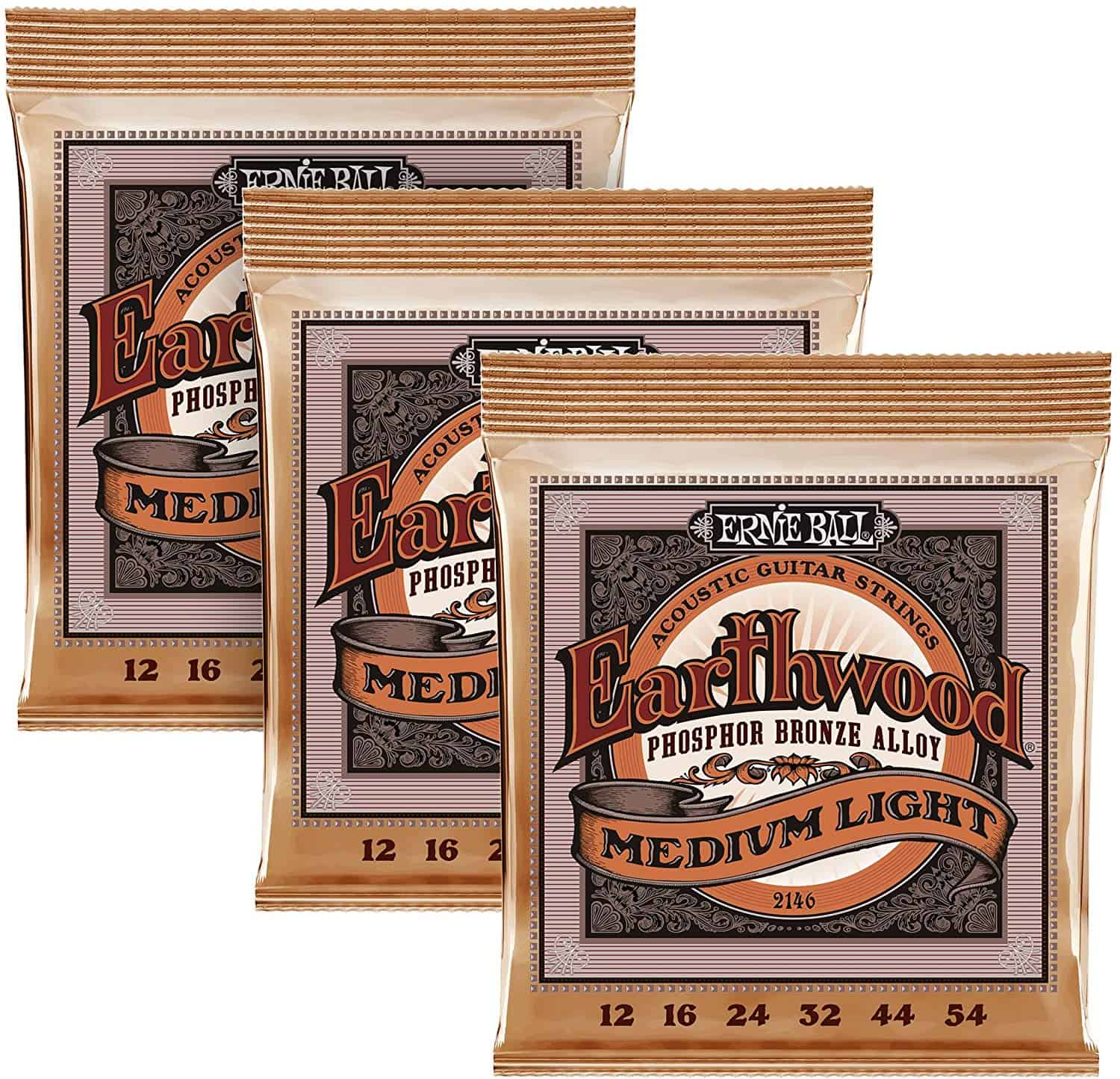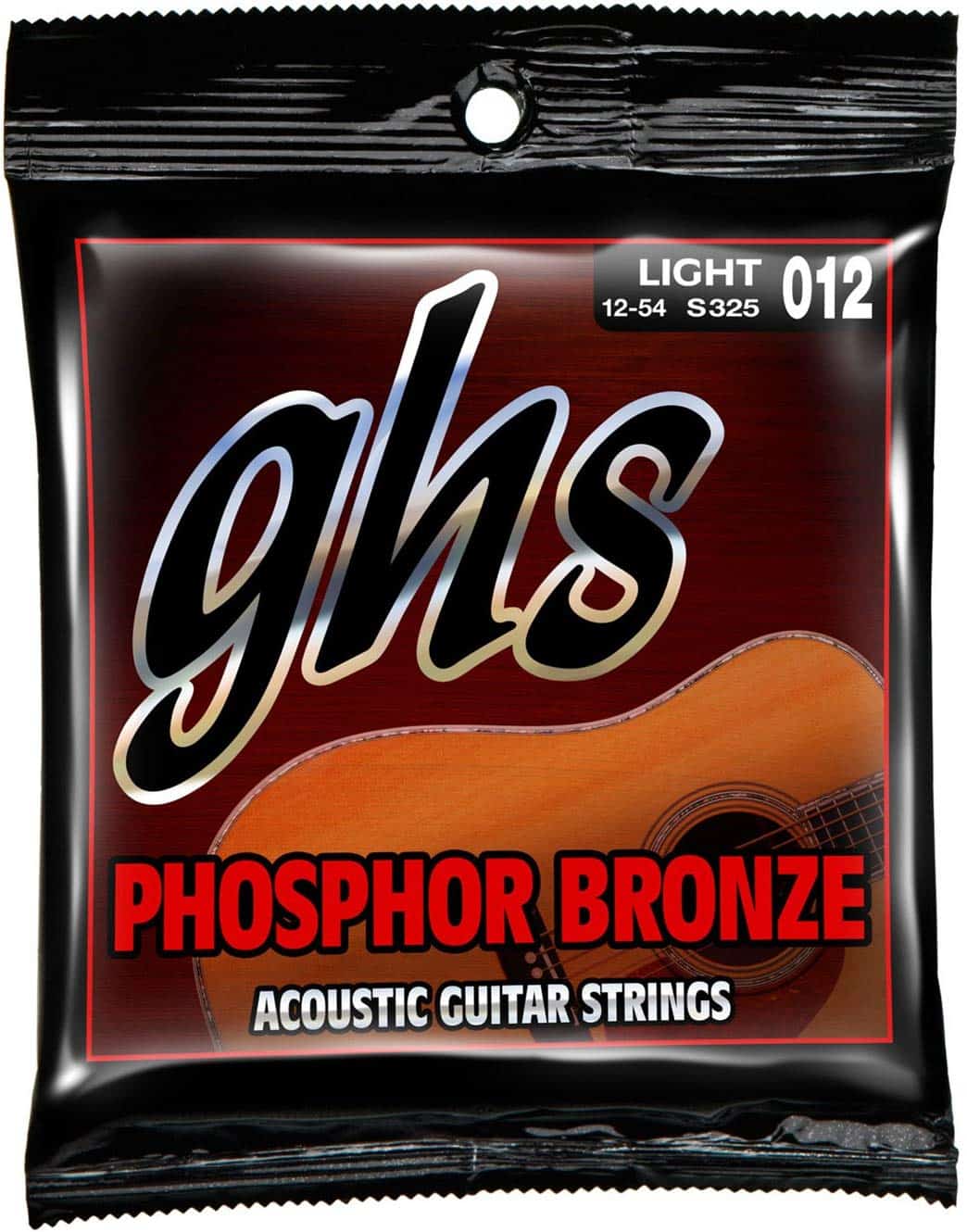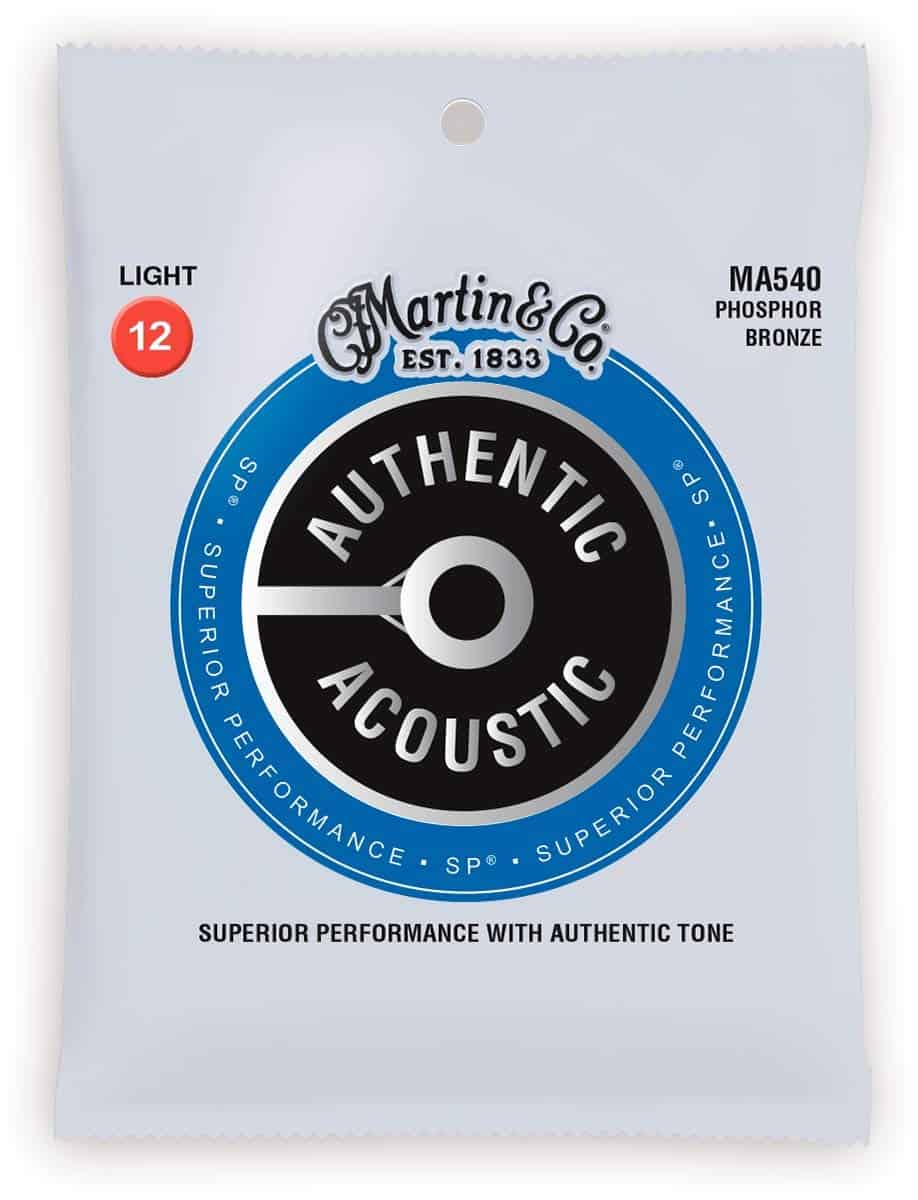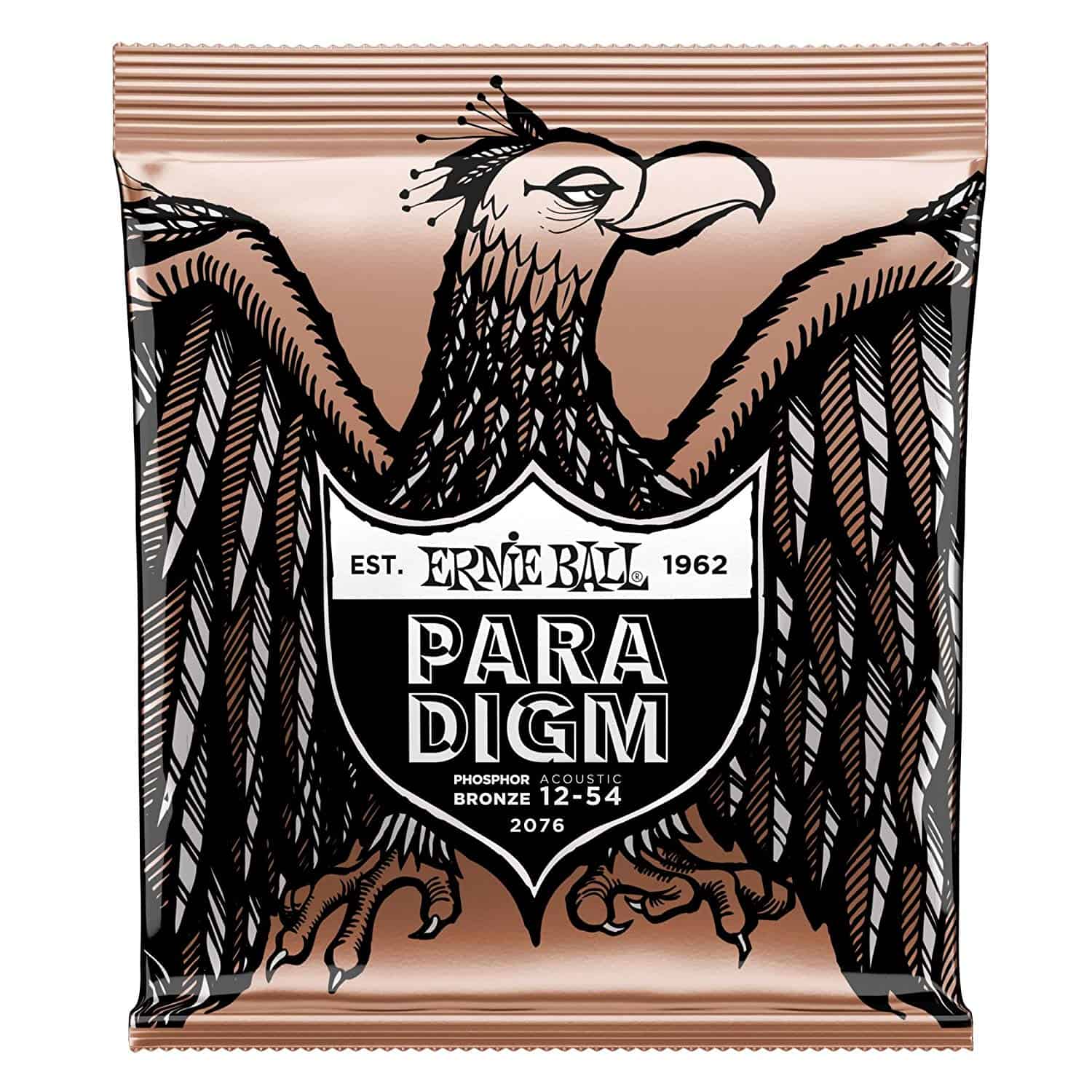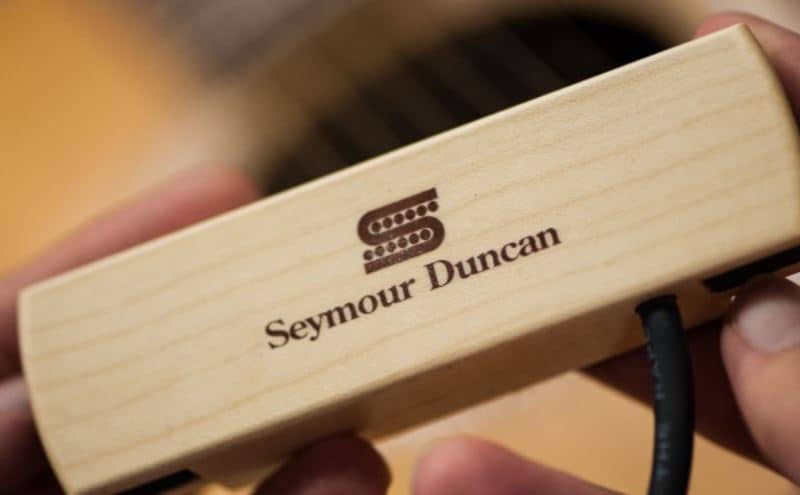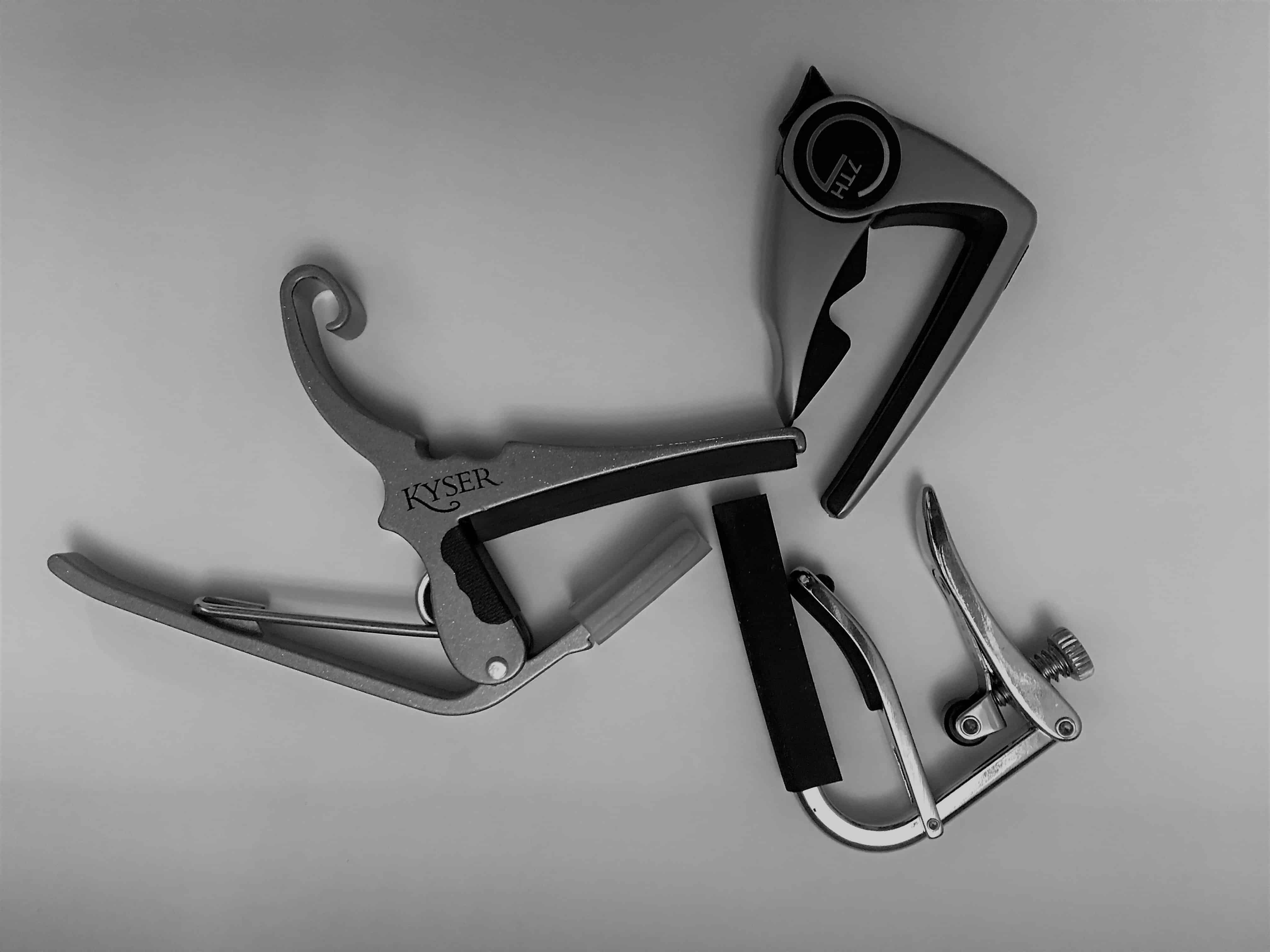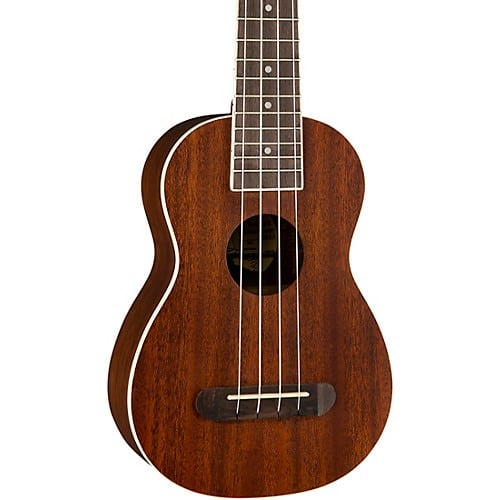
By James Wall
We all want to know, what are the best acoustic guitar strings for my guitar? This is because not too long after purchasing your first acoustic guitar you will realize over time that the sound isn't as clear and bright as when you bought it, that it doesn't always hold pitch like it should and you start to see corrosion and/or dirt build up between the string winding gaps.
When this happens, you know it's time to change your acoustic guitar strings. The challenge is there are many choices and options available. New to guitar? Check out our beginners guide.
Should I get 80 20 bronze or Phosphor bronze materials? Is it important to have a coating to extend string life? Do I want extra-light, light, or medium gauge for my style of play? These are just a few of the best acoustic guitar string questions you'll face.
Let us help you navigate the different types of guitar string for acoustic available.
Here are our picks for best acoustic guitar strings:
Our Top Picks by category:
- Phosphor Bronze Coated: D'Addario XT
- 80/20 Coated: Elixir Nanoweb
- Bargain: Ernie Ball Earthwood
- Phosphor Bronze Un-coated: ghs Phosphor Bronze
- Other Acoustic Guitar Strings of Interest
Best Acoustic Guitar Strings on the Market
Image | Product | Benefits | Spec's |
|---|---|---|---|
Best Acoustic Guitar String Reviews
1. D'Addario Phosphor Bronze XT
D'Addario has a great lineup of acoustic guitar strings.
In testing we found they provided an optimum balance of tone as well as providing a comfortable feel to the fingers.
Here are the reasons we liked D'Addario XT strings above the others available:
- For the casual player, who may only play a few times a week it doesn't make sense to use strings that fade after 4-6 weeks. The coated acoustic strings last longer, in fact up to 4 times longer.
- The coating on these strings had a nice tactile feel to them. They weren't slippery but felt soft to the finger and because they were not super slippery, bending notes was easier.
- The bass guitar string is a .53 gauge rather than the .54 gauge many brands provide with their light strings. This seemed to make the low E fingering slightly easier.
- They are sealed in plastic, so they don't corrode due to exposure to the various climates. These aren't inexpensive so why take a chance of them losing their lively tone before you even put them on your instrument?
One other thing that D'Addario does a little different is they coat the bronze wrap wire with their proprietary XT coating prior to winding. We feel this is where they get the tact we felt when playing these strings.
What is the difference between D'Addario XT and XS strings?
As a side note, there is an XS string line for D'Addario now, in fact Taylor guitar has decided to make the XS string the string they put on all of their new guitars leaving the factory.
In Short, the XS string is similar to Elixer strings in the thin coating is placed over the windings after the string has been wound.
The XT string coats the winding before they are wound onto the string. This closer simulates an un-coated string and is less slippery. This was our preference but if you like the 'slinky' feel of Elixers you may want to try out D'Addario's XS strings.
While we believe coating on the strings doesn't make a noticeable change in tone, there are many who disagree. If you are adamant that you do not want coating on your strings, you may want to also check out the EJ16 Line. These are a viable option for an un-coated version even though they didn't make our top list.
For our top pick we stand by the XT line-up.
2. Elixir 80/20 Bronze NANOWEB
Elixir's 80/20 Nanoweb variety actually tied in score with our top choice.
This was a fairly difficult choice to put Elixir as #2 on the list. Here is what we liked about these strings:
- The low E guitar string was a .53 gauge making it easier to play.
- The tone was very even no matter what guitar we put the string set on. It was on par or better in some cases than our first choice.
- Buttery feel of the strings made them very easy to fret.
- 80/20 strings have a nice warm tone.
The only real knock on these strings is we would have preferred they were in a sealed package instead of the paper envelops. And while the strings felt good, we preferred the feel of the D'Addario XT's. The D'Addario brand was slightly less expensive.
Even though these are #2 on our list, we highly recommend these strings. You won't be disappointed.
3. Ernie Ball Earthwood Phosphor Bronze
Ernie Ball Earthwood acoustic strings are a nice basic string set for acoustic guitar.
Regardless of whether prefer that your strings are not coated, or you just don't want to pay the extra price for the coating; The Ernie Ball Earthwood acoustic guitar strings are our top choice. They used to be marketed under the super slinky brand name.
The larger bass gauge (.54 gauge) gives more volume making these excellent strings for Bluegrass picking or any other music you are looking for a stronger bass tone.
The overall tone of these acoustic guitar strings has a vintage quality.
In summary for a basic no frills guitar strings, look no further than Ernie Ball's Earthwood line.
4. ghs - Phosphor Bronze Acoustic
The GHS acoustic guitar strings are a great middle of the road string.
In all of our tests the GHS strings played vary well. Subjectively, they are slightly brighter in tone than the Ernie Ball Earthwood brand.
GHS also has the thicker in diameter bass string (.54 gauge ) and is also well suited for music that needs a booming bass tone.
The packaging seals the strings keeping them sounding as if they just came from the factory. If your looking for a brighter tone in a no frills set of acoustic guitar strings. Look no further.
Best Acoustic Guitar Strings - other contenders
5. Santa Cruz Parabolic Tension Acoustic Guitar Strings
User Rating
Product Details
Core: Nickel and Lead-free Hex shaped core
Winding: P92% copper with 8% tin
Coating: Core and Winding coated separately
Pros
- Only two choices to make Low Tension and Medium Tension
- Quality Build
- Even voicing across the entire set
- You can enroll in a subscription and have them auto delivered.
Cons
- Relatively high price
- Not as readily available
Santa Cruz guitar company is well known for their acoustic guitars, so naturally everyone is interested in what their take on strings are.
According to Santa Cruz it should be more about the tension and less about the gauge size on a string. Thus allowing for individual voicing of each string, rather than having the tension set by wrapping the same winding around different core sizes.
The diagram to the right depicts how the winding and core size can vary to make up the overall diameter.
So the question everyone asks is are parabolic tension strings worth it?
Because because tone can be subjective the results are mixed. The one common theme in our tests highlighted that the notes for each string seemed to be more distinct. In fact, even leveled out some of the tonal differences between woods on a guitar.
If you've never tried this brand, order some and test them out.
The general consensus for our team was that the price out weighted any benefits, keeping it off of our top pick, despite them being a great sounding option.
6. Martin Authentic Acoustic Guitar Strings - Superior Performance
We really wanted to like these strings, having a played a Martin for years I've always thought why not put the martin brand on it?
While the strings performed pretty well after a couple of days of settling in, they weren't much different in tone than our top choices that sounded better right out of the package. They also are a little stiffer than the D'Addario and Elixir brands. This is probably due to the high tinsel strength.
For straight up bluegrass picking and other heavy handed styles of music, the tone is well matched for these strings. If this is your style you should try a set to see how they work for you. Unfortunately we can not recommend them based on the head to head tests we performed over some of our top picks.
7. Paradigm Acoustic Guitar Strings
The Ernie Ball Paradigm line is known for tinsel strength an resiliency to corrosion. In our tests we found that the strings were a little stiffer feeling at first that many of the products we tested.
The tone was also a little brash right out of the package. However after playing them in, paradigm acoustic string tone was consistently in our top 5. They weren't the best, but were consistently right there just below the top picks.
What these Paradigm line does differently is they changed the way they draw the steel for the string providing more strands giving a stronger tinsel
Conclusion
Picking the best acoustic guitar strings isn't easy with so many great brands out there.
Luckily getting to play all the different strings was a joy. Who wouldn't like to sit around and play your favorite music, always using a new set of strings!
- The tactile feel of the strings.
- The sealed packaging.
- The livelier tone of the strings.
You can't go wrong with either but if we have to choose it would be the D'Addario XT.
What kind of acoustic guitar strings should I get?
Coating or No Coating
In the early days of coating acoustic guitar strings, this was a pretty hot topic among tone aficionados. There was a lot of discussion around effects on tone.
For musicians that change strings often, it may still make sense to use the non-coated strings since they are less expensive. However, for the everyday guitarist that doesn't change them as often, why not spend a little more on a string that will last longer and maintain its tone longer?
Using coated will all you to enjoy your strings without being concerned with changing your strings every week or so.
Phosphor Bronze, 80/20, Silk and Steel, Aluminum?
Traditional tone seekers will tend to have an affinity with the 80/20 (~80% copper and ~20 zinc) as these strings have a warm earthy tone, some might even say darker.
Phosphor Bronze strings (92% copper with 8% tin) have a brighter tone and are a familiar sound to most. If you played a snippet of sound from both 92% copper with 8% tin and a set of 80 20 bronze strings, our experience is the majority would prefer the Phosphor Bronze over the 80 20 Bronze.
Unless you really are looking for the darker traditional tone we would suggest the Phosphor Bronze string set to most.
Silk and Steel strings have a softer feel and for those that have a lighter playing style you may want to consider trying the silk and steel strings. Typically, these are a round core steel wire wrapped in a soft material (the silk if you will) and then wound with the outer later.
One other option to coated acoustic guitar strings are Aluminum and Nickel wound strings. Aluminum strings naturally are resistant to corrosion. Unfortunately, in our testing the Aluminum strings just didn't sound as good as most of the strings we tested.
As for the nickel strings they work well with pickups so if you rely on electronics to shape your sound you may want to consider nickel wound strings.
There are other materials that get used for strings but for the average guitarist you probably won't find a need for them unless you just like to experiment.
Which Diameter acoustic strings should I get?
Sizing of strings usually gets labeled with a diameter of the smallest and largest string listed. The smaller number is the high E string and the larger number is the low E string.
In the end, the actual size strings you prefer is purely up to you as you know what feels right for your style of play. As a general guideline strings with a gauge range of .012-.053 or .012-.054 are the best for general use. They will usually be labeled as custom light, light, or medium light strings.
The actual diameters vary by manufacturer so here is a table by manufacturer of the common sizing and gauge for the strings we reviewed:
Brands | Diameter Range | Label | Price Check | Rating |
|---|---|---|---|---|
D'Addario XT | .011-.052 .012-.053 .013-.056 | Cstm Light Light Medium | ||
Elixir Nanoweb 80/20 | .010-.047 .011-.052 .012-.053 .012-.056 .013-.056 | Extra Light Cstm Light Light Light Med Medium | ||
Ernie Ball Earthwood | .010-.050 .011-.052 .012-.054 .013-.056 | Extra Light Light Med Light Medium | ||
GHS | .010-.046 .011-.050 .012-.054 .013-.056 .014-.058 | Ultra Light Extra Light Light Medium Heavy | ||
Martin Authentic Acoustic | .010-.047 .011-.052 .012-.054 .012-.056 .013-.056 | Extra Light Cstm Light Light Bluegrass Medium | ||
Ernie Ball Paradigm | .010-.050 .011-.052 .012-.054 .013-.056 | Extra Light Light Med Light Medium |
There is one other school of thought regarding string diameter or gauge. That thought is it doesn't matter. Santa Cruz guitars follows the thought that tension is what matters and they offer Light (parlor and smaller bodied acoustic guitars) or Medium (dreadnought and other larger guitars) tension strings. The calibrate the tension for each individual string voice.
Can I put different manufacturers strings on my guitar?
As stated else where in this review is spent much of my life just using what ever acoustic guitar string the manufacturer used as my replacement strings. But after running all of the tests I found that in many cases there were other strings that sound as good or even better.
To answer the question while a manufacturer may recommend 'their' brand of strings there is no reason why you can't use any other brand. And the reverse is true to...there is no reason why if you prefer martin authentic acoustic strings, that you can't put them on your Taylor guitar.
There is one caveat, you should stick with the same or similar gauge of strings that your guitar was setup with. If your new strings have a large difference in tension, they may change the action of your guitars strings and you would need to have it re-setup for new gauge.
Recap of the Top Products For Your Needs
RANK | IMAGE | PRODUCT | PURPOSE | PRICE |
|---|---|---|---|---|
